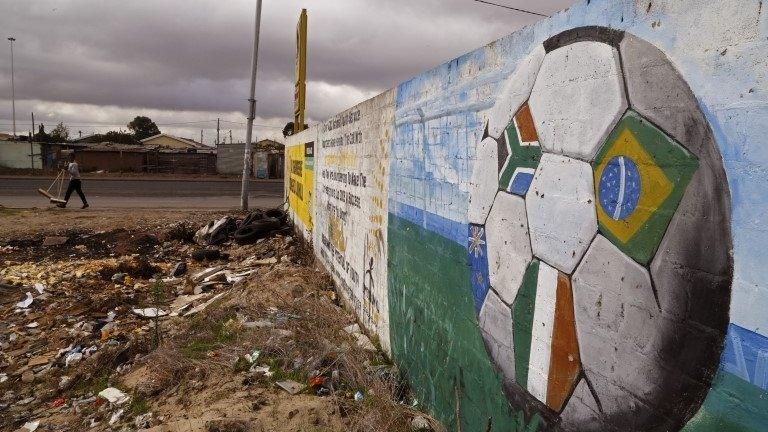Sepp Blatter resignation one of sport's most dramatic falls
- Published
Sepp Blatter resigns as Fifa president saying new elections will be held soon
How eternal did Sepp Blatter's reign at Fifa appear to be?
Here are a few things that have happened since he took up his first post there: the founding of Apple computers, punk rock, not only the birth of current world footballer of the year Cristiano Ronaldo but the meeting of his parents; the Space Shuttle, the fall of the Berlin Wall, Pol Pot becoming prime minister of Cambodia.
This was the most immovable of dictatorships, a monopoly apparently immune to scandal, logic and precedent.
Blatter did not just control the most popular sport in the world. As befits the boy who reportedly possessed the only professional-quality ball at his primary school, he acted as if he owned football itself.
"I am the president now, the president of everybody," he said after winning a fifth term as Fifa's head last Friday. What would have sounded like parody coming from the mouth of anyone else served instead as an accurate reflection of his own self-image.
Sepp Blatter thanked Fifa delegates for his re-election
Sport and scandal are familiar companions. Where there is money there is greed. Where there is greed there will be cheating. Where there is power there will be temptation.
The dark storm of allegations which led to Blatter's dramatic resignation on Tuesday are only the most recent of the venal affairs to dog sport at the highest level. The allegations of bribery in Salt Lake City's successful campaign to host the 2002 Winter Olympics saw 10 senior International Olympic Committee figures resign.
But that was one event, at one moment in time. Football is the dominant global game. For more than a decade, its highest custodians stand accused of endemic and methodical corruption.
The shock lies not in the charges themselves but in the fact that Blatter, master of perpetual evasion, not just a Teflon Don but a man so slippery even his own shadow struggles to cling on, has finally been brought down by them.
Not since the final fall of cyclist Lance Armstrong has there been a regicide so dramatic.
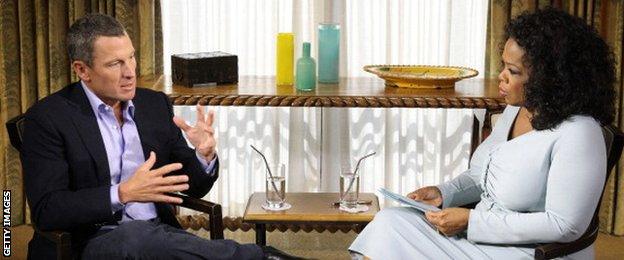
Cyclist Lance Armstrong sat down opposite talk-show queen Oprah Winfrey in 2013 to confess to systematic doping
Denial, implausible denial, but still both stayed immune. And then, just as Armstrong was destroyed by US Anti-Doping just a few months after the end of an FBI investigation appeared to set him free to continue his self-mythologising, so Blatter has gone within a week of being granted another five years at the reins.
Armstrong took a while to admit his own guilt. Blatter has so far carefully avoided handing over a smoking gun.
As mea culpas go, "my mandate does not appear to be supported by everybody" is Sepp's equivalent of wardrobe malfunction, an empty phrase that only hints at the naked scandal beneath.
"Crisis? What is a crisis?" he famously asked before being voted in unopposed four years ago.
This last week alone serves as a neat summary: seven Fifa officials arrested in Switzerland at the request of the US authorities investigating corruption of more than $150m (£97m); reports claiming Fifa general secretary Jerome Valcke was responsible for an alleged $10m (£6m) payment of bribes over South Africa's bid to host the 2010 World Cup; a separate criminal investigation by Swiss authorities into how the 2018 and 2022 World Cups were allocated.
And there are scandals within the scandals. If the decision to award Qatar the 2022 World Cup was not contentious enough in itself, in December last year Fifa chose not to release its own investigation into corruption. The report's author, American Michael Garcia, immediately resigned.
Blatter said last week that he wanted to stay on at Fifa to "lift the shadow" cast by those arrests, which would be like asking disgraced Olympic sprinter Ben Johnson to lead the 1989 Dubin Inquiry, the Canadian government investigation into drug abuse which followed his positive test at the 1988 Seoul Games.
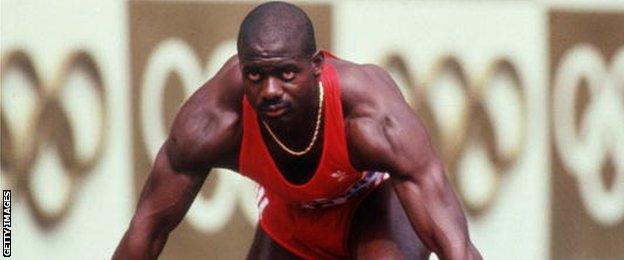
Sprinter Ben Johnson was stripped of his Olympic 100m gold medal after testing positive for anabolic steroids
Just as Johnson's career descended into a place beyond satire - being hired by Libyan dictator Muammar Gaddafi as football coach for his son, Al-Saadi Gaddafi (who was subsequently thrown out of Italian club Perugia after one game for failing a dope test of his own); launching a clothing line with the slogan "Catch Me" - so Blatter has frequently taken football into ridicule.
You can take your pick of his most eccentric observations: that racism in football was best cured by handshakes on the pitch, that women footballers should wear tighter shorts to bring a bigger audience to the game, that gay supporters attending the Qatar World Cup should refrain from sexual activity while in the country.
Sepp Blatter's controversial career
Much in the same way that Armstrong was defended by his disciples on the grounds that his achievements, while unfairly won, spread his sport's gospel and took it to new and greater commercial success, so Blatter acolytes have long pointed to football's growth beyond its traditional powerbase - World Cups in South Korea and Japan, in South Africa, in the Middle East for the first time ever.
But he has done this while not only retaining all the real power where it always lay, in the hands of a white European male elite, but by turning what should have been a global governing body into a quasi-state, autonomous from the tax regimes where it staged its greatest contests, free to do what it chose under the cover of promoting the beautiful game.
This is not fostering a sport. It is poisoning it from the inside.
Blatter's abdication may have been unexpected. But it will be welcomed throughout football, a game that deserves so much better.
- Attribution
- Published29 May 2015

- Published2 June 2015
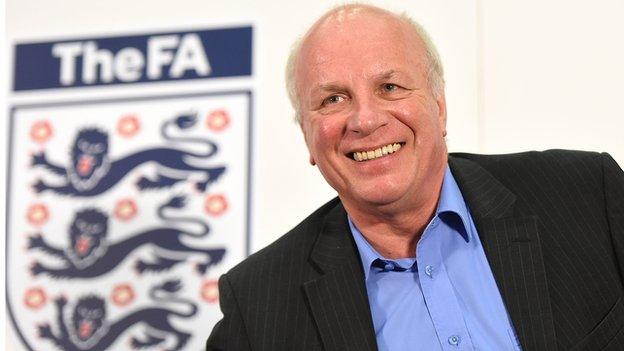
- Attribution
- Published21 December 2015
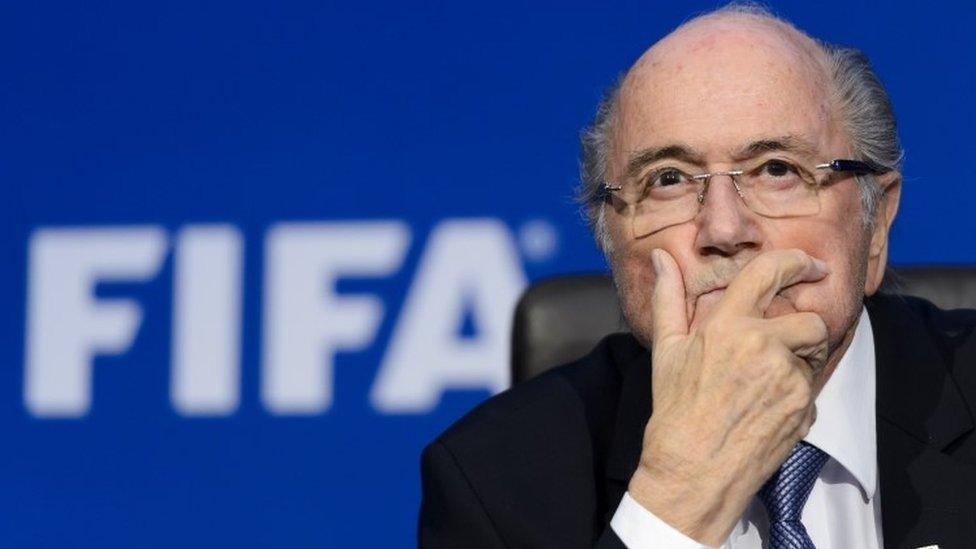
- Published2 June 2015
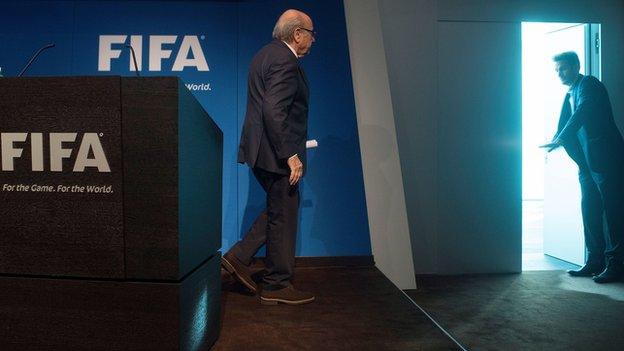
- Published2 June 2015
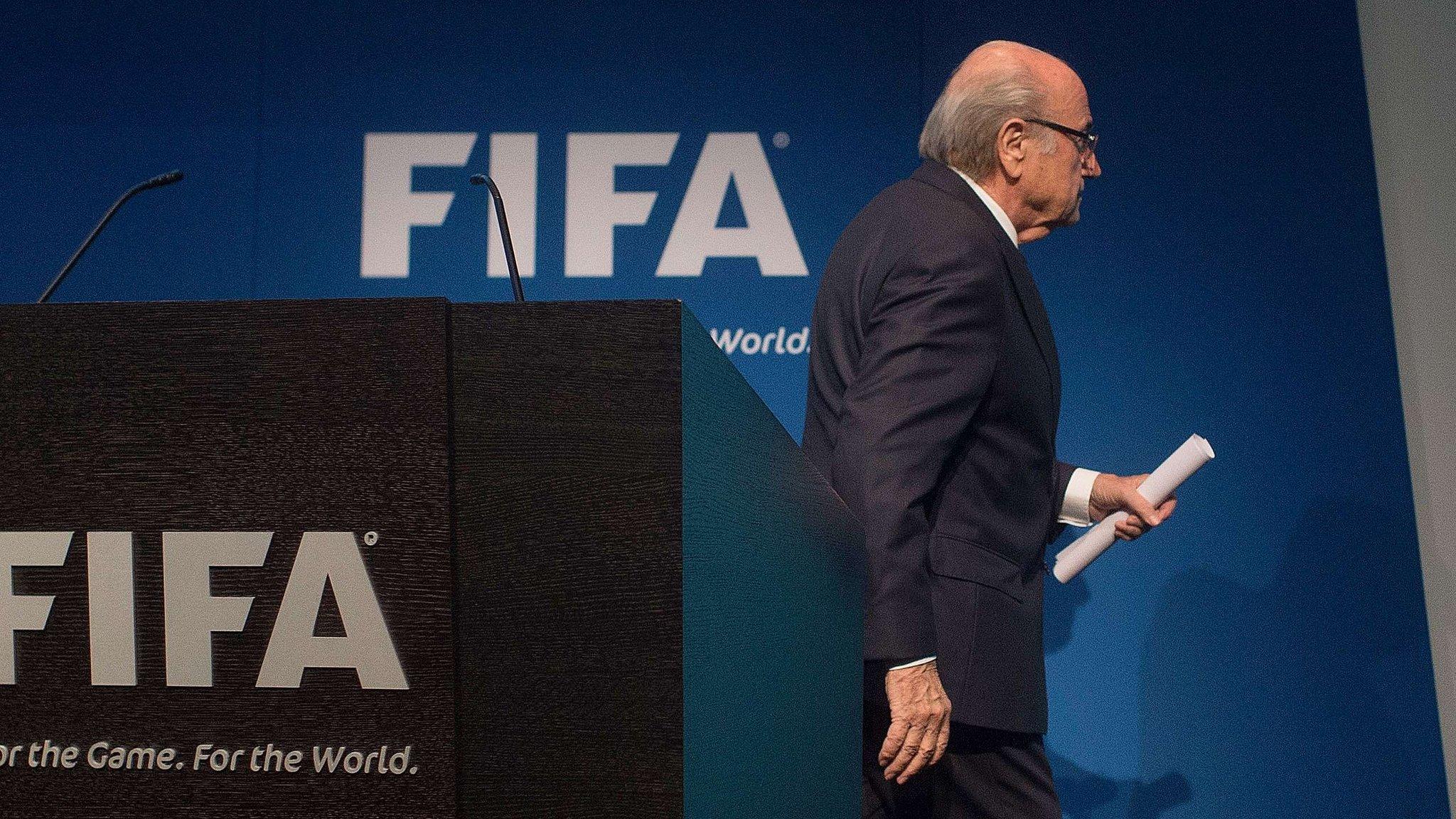
- Published2 June 2015
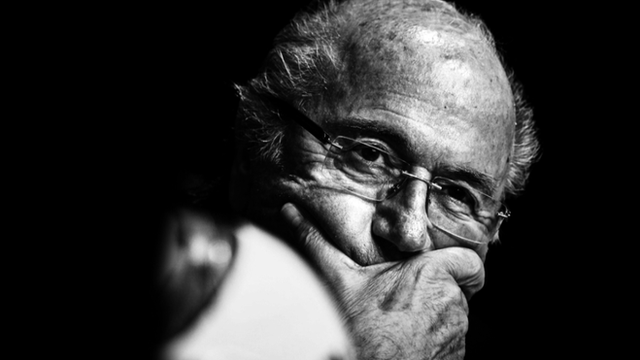
- Published2 June 2015
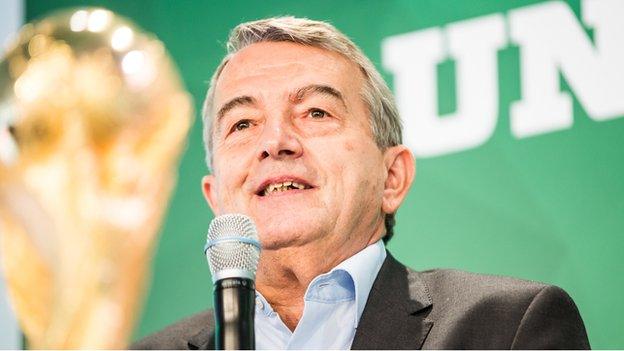
- Attribution
- Published2 June 2015
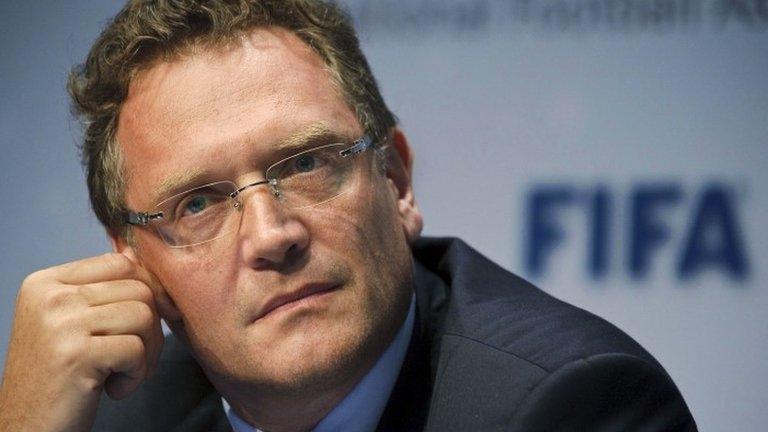
- Attribution
- Published21 December 2015
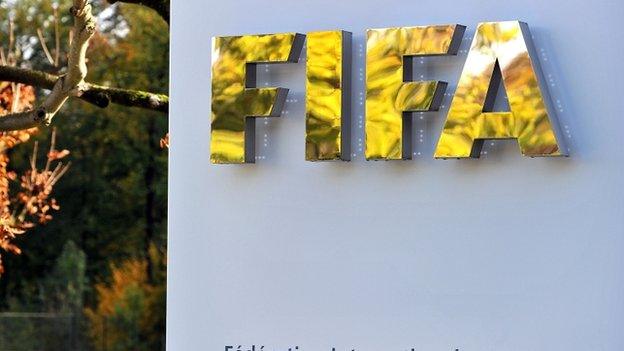
- Attribution
- Published6 January 2016
